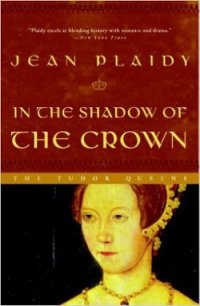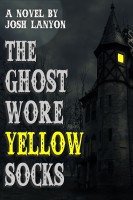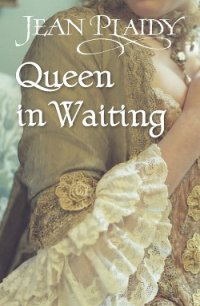The Secret Garden - Burnett Frances Hodgson (электронные книги без регистрации .TXT) 📗
"That's a very old tree over there, isn't it?" he said.
Dickon looked across the grass at the tree and Mary looked and there was a brief moment of stillness.
"Yes," answered Dickon, after it, and his low voice had a very gentle sound.
Mary gazed at the tree and thought.
"The branches are quite gray and there's not a single leaf anywhere," Colin went on. "It's quite dead, isn't it?"
"Aye," admitted Dickon. "But them roses as has climbed all over it will near hide every bit o' th' dead wood when they're full o' leaves an' flowers. It won't look dead then. It'll be th' prettiest of all."
Mary still gazed at the tree and thought.
"It looks as if a big branch had been broken off," said Colin. "I wonder how it was done."
"It's been done many a year," answered Dickon. "Eh!" with a sudden relieved start and laying his hand on Colin. "Look at that robin! There he is! He's been foragin' for his mate."
Colin was almost too late but he just caught sight of him, the flash of red-breasted bird with something in his beak. He darted through the greenness and into the close-grown corner and was out of sight. Colin leaned back on his cushion again, laughing a little.
"He's taking her tea to her. Perhaps it's five o'clock. I think I'd like some tea myself."
And so they were safe.
"It was Magic which sent the robin," said Mary secretly to Dickon afterward. "I know it was Magic." For both she and Dickon had been afraid Colin might ask something about the tree whose branch had broken off ten years ago and they had talked it over together and Dickon had stood and rubbed his head in a troubled way.
"We mun look as if it wasn't no different from th' other trees," he had said. "We couldn't never tell him how it broke, poor lad. If he says anything about it we mun—we mun try to look cheerful."
"Aye, that we mun," had answered Mary.
But she had not felt as if she looked cheerful when she gazed at the tree. She wondered and wondered in those few moments if there was any reality in that other thing Dickon had said. He had gone on rubbing his rust-red hair in a puzzled way, but a nice comforted look had begun to grow in his blue eyes.
"Mrs. Craven was a very lovely young lady," he had gone on rather hesitatingly. "An' mother she thinks maybe she's about Misselthwaite many a time lookin' after Mester Colin, same as all mothers do when they're took out o' th' world. They have to come back, tha' sees. Happen she's been in the garden an' happen it was her set us to work, an' told us to bring him here."
Mary had thought he meant something about Magic. She was a great believer in Magic. Secretly she quite believed that Dickon worked Magic, of course good Magic, on everything near him and that was why people liked him so much and wild creatures knew he was their friend. She wondered, indeed, if it were not possible that his gift had brought the robin just at the right moment when Colin asked that dangerous question. She felt that his Magic was working all the afternoon and making Colin look like an entirely different boy. It did not seem possible that he could be the crazy creature who had screamed and beaten and bitten his pillow. Even his ivory whiteness seemed to change. The faint glow of color which had shown on his face and neck and hands when he first got inside the garden really never quite died away. He looked as if he were made of flesh instead of ivory or wax.
They saw the robin carry food to his mate two or three times, and it was so suggestive of afternoon tea that Colin felt they must have some.
"Go and make one of the men servants bring some in a basket to the rhododendron walk," he said. "And then you and Dickon can bring it here."
It was an agreeable idea, easily carried out, and when the white cloth was spread upon the grass, with hot tea and buttered toast and crumpets, a delightfully hungry meal was eaten, and several birds on domestic errands paused to inquire what was going on and were led into investigating crumbs with great activity. Nut and Shell whisked up trees with pieces of cake and Soot took the entire half of a buttered crumpet into a corner and pecked at and examined and turned it over and made hoarse remarks about it until he decided to swallow it all joyfully in one gulp.
The afternoon was dragging toward its mellow hour. The sun was deepening the gold of its lances, the bees were going home and the birds were flying past less often. Dickon and Mary were sitting on the grass, the tea-basket was re-packed ready to be taken back to the house, and Colin was lying against his cushions with his heavy locks pushed back from his forehead and his face looking quite a natural color.
"I don't want this afternoon to go," he said; "but I shall come back to-morrow, and the day after, and the day after, and the day after."
"You'll get plenty of fresh air, won't you?" said Mary.
"I'm going to get nothing else," he answered. "I've seen the spring now and I'm going to see the summer. I'm going to see everything grow here. I'm going to grow here myself."
"That tha' will," said Dickon. "Us'll have thee walkin' about here an' diggin' same as other folk afore long."
Colin flushed tremendously.
"Walk!" he said. "Dig! Shall I?"
Dickon's glance at him was delicately cautious. Neither he nor Mary had ever asked if anything was the matter with his legs.
"For sure tha' will," he said stoutly. "Tha'—tha's got legs o' thine own, same as other folks!"
Mary was rather frightened until she heard Colin's answer.
"Nothing really ails them," he said, "but they are so thin and weak. They shake so that I'm afraid to try to stand on them."
Both Mary and Dickon drew a relieved breath.
"When tha' stops bein' afraid tha'lt stand on 'em," Dickon said with renewed cheer. "An' tha'lt stop bein' afraid in a bit."
"I shall?" said Colin, and he lay still as if he were wondering about things.
They were really very quiet for a little while. The sun was dropping lower. It was that hour when everything stills itself, and they really had had a busy and exciting afternoon. Colin looked as if he were resting luxuriously. Even the creatures had ceased moving about and had drawn together and were resting near them. Soot had perched on a low branch and drawn up one leg and dropped the gray film drowsily over his eyes. Mary privately thought he looked as if he might snore in a minute.
In the midst of this stillness it was rather startling when Colin half lifted his head and exclaimed in a loud suddenly alarmed whisper:
"Who is that man?"
Dickon and Mary scrambled to their feet.
"Man!" they both cried in low quick voices.
Colin pointed to the high wall.
"Look!" he whispered excitedly. "Just look!"
Mary and Dickon wheeled about and looked. There was Ben Weatherstaff's indignant face glaring at them over the wall from the top of a ladder! He actually shook his fist at Mary.
"If I wasn't a bachelder, an' tha' was a wench o' mine," he cried, "I'd give thee a hidin'!"
He mounted another step threateningly as if it were his energetic intention to jump down and deal with her; but as she came toward him he evidently thought better of it and stood on the top step of his ladder shaking his fist down at her.
"I never thowt much o' thee!" he harangued. "I couldna' abide thee th' first time I set eyes on thee. A scrawny buttermilk-faced young besom, allus askin' questions an' pokin' tha' nose where it wasna' wanted. I never knowed how tha' got so thick wi' me. If it hadna' been for th' robin—Drat him—"
"Ben Weatherstaff," called out Mary, finding her breath. She stood below him and called up to him with a sort of gasp. "Ben Weatherstaff, it was the robin who showed me the way!"
Then it did seem as if Ben really would scramble down on her side of the wall, he was so outraged.




